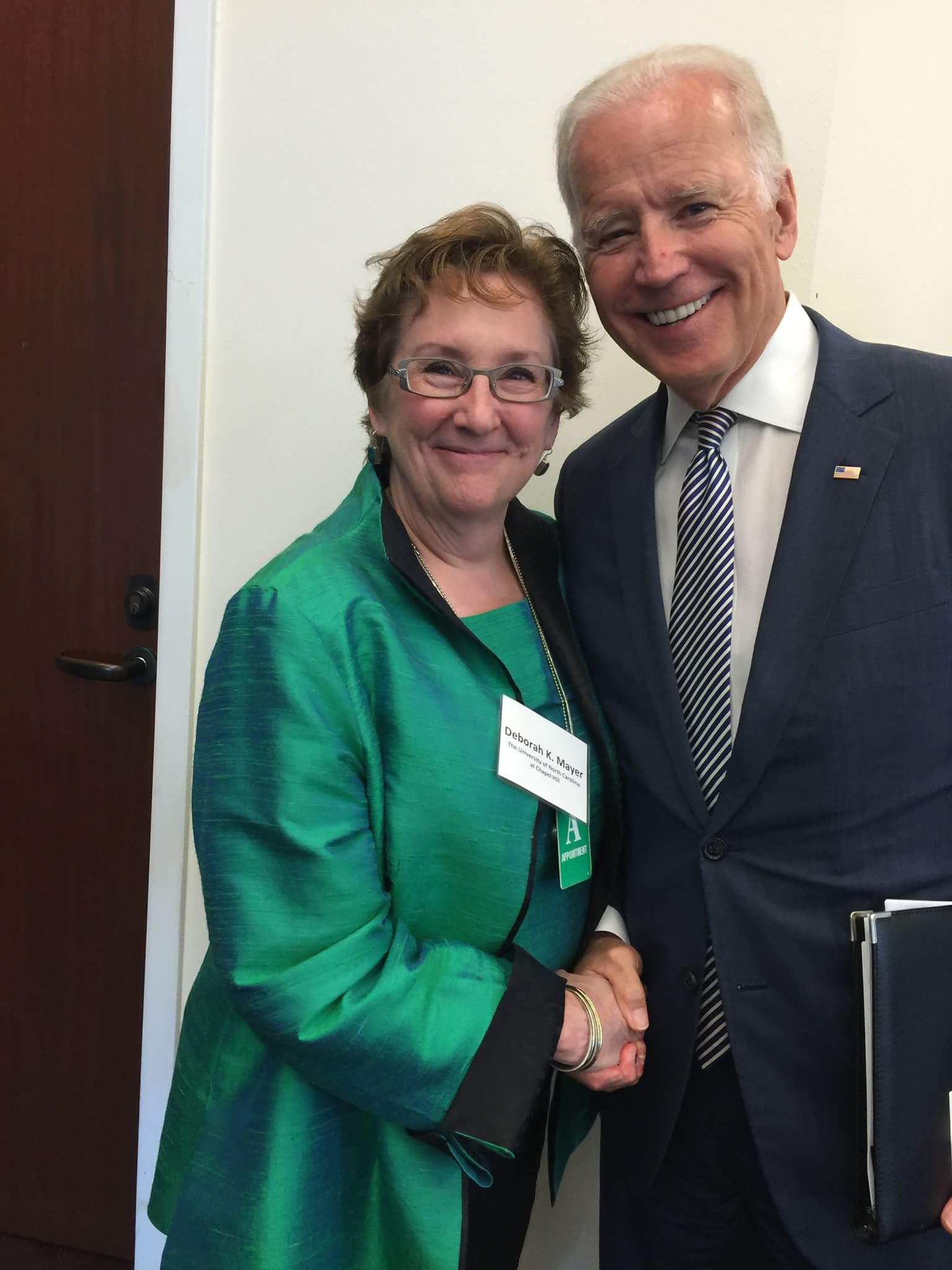
BETHESDA, MD—June 14, 2016—The National Cancer Moonshot Initiative Blue Ribbon Panel announced the formation of seven working groups that will identify major areas of opportunity that could lead to significant breakthroughs in cancer research. Three ONS members have been appointed to two of these working groups. Deborah Mayer, PhD, RN, AOCN®, FAAN (pictured left with Vice President Joe Biden), University of North Carolina School of Nursing, and Kathi Mooney, PhD, RN, Huntsman Cancer Institute, have been appointed to the Implementation Sciences Working Group. Jeannine Brant, PhD, APRN, AOCN®, FAAN, Billings Clinic, will serve on the Expanding Clinical Trials Working Group. Mayer is also a member of the Blue Ribbon Panel.
According to the National Cancer Institute, the Implementation Sciences group will focus on studying the impact of cancer on large populations to inform the policies, practices, and programs that will directly affect patients. The group is also tasked to assess and develop best practices for distributing new information about cancer prevention, survivorship, risk assessment, treatment, screening, and prognosis. They will also focus on providing easy, real-world interventions to enable clinical workers and healthcare professionals to share emerging cancer knowledge with their colleagues, patients, and caregivers. Mayer and Mooney will bring their experience as nurse researchers to help inform the group’s work.
Increasing participation in clinical trials has been a key focus for the Cancer Moonshot since it was first announced during the president’s State of the Union address in January 2016. Brant, along with other oncology experts, will examine emerging clinical trials procedures that focus on the molecular makeup of many different cancers. Their work will also focus on increasing the number of clinical trial candidates, making trials broadly accessible to patients who are interested in participating.
“The Cancer Moonshot initiative has provided a golden opportunity for all of us involved in cancer care to take a step back and ask, how can we redesign cancer care for the future?” Brant said. “I feel privileged to work with such a brilliant group of scientists, brainstorming strategies on our calls, to take science to the next level, improve access to clinical trials and late-breaking treatments, and to address disparities in inequitable care that exists within our current systems. As a team, we continue to ask ourselves, ‘What about the patient? What will our efforts mean to patients? Does it make sense? Will access be easier?’ Overall, being a part of the Cancer Moonshot work has been an honor, and I am pleased to share the voice of oncology nursing and the community.”
ONS is a professional association of more than 39,000 members committed to promoting excellence in oncology nursing and the transformation of cancer care. Since 1975, ONS has provided a professional community for oncology nurses, developed evidence-based education programs and treatment information, and advocated for patient care, all in an effort to improve quality of life and outcomes for patients with cancer and their families. Learn more at www.ons.org.





